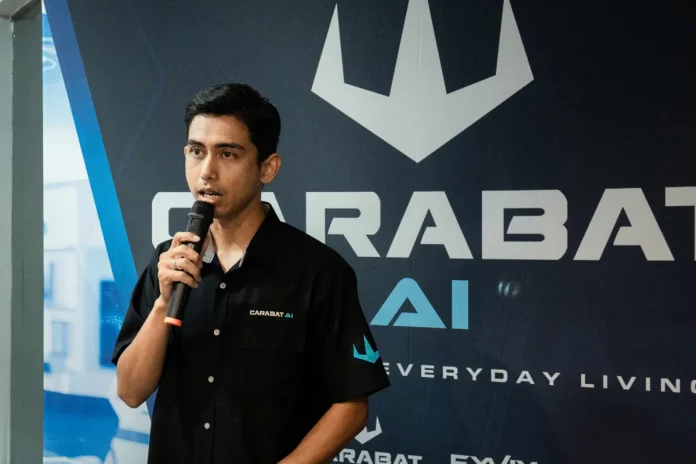SUBANG JAYA: Malaysia’s homegrown smart living technology firm Carabat Al plans to invest RM3 million in capital expenditure in 2026, with spending expected to increase in subsequent years to support its aggressive retail expansion.
CEO Shafiq Jailani said the company aims to grow its current network of six outlets to 50-60 outlets by 2026, and to 150 outlets nationwide by 2028.
“We are expecting around RM2 million to RM3 million for 2026. We aim to expand to about 50 outlets by next year and around 150 by 2028. Demand is strong as Malaysia has few specialised smart-living stores despite high consumer interest, and many buyers prefer to test products in person,” he told reporters at the launch of the company’s first Smart Living Gallery at its SS15 flagship store today.
Shafiq shared that Carabat Al is backed by Malaysian individual investors who see long-term potential in smart home and AI-driven technologies. “Carabat Al is financed by Malaysian individual investors, not foreign shareholders.”
He said Malaysians are increasingly curious about smart home systems and want to see how the technology works in real-life settings.
“The Smart Living Gallery shows, in a practical way, how connected systems can improve comfort, efficiency and peace of mind. Our goal is to make smart living simple rather than intimidating,” he added.
Carabat Al products are available through six physical outlets at Subang Jaya, Wangsa Maju, Hartamas, Kota Kinabalu, Seberang Jaya and Kota Bharu, and online platforms including Shopee, Lazada and TikTok Shop.
Business development manager Keith Oh Joon Kit said while Alexa is currently used as the voice assistant engine, Carabat Al ultimately aims to fully localise the smart home experience via the Astana platform.
“We don’t want to depend entirely on foreign engines. Our end goal is full localisation, with voice control and automation powered by our own Malaysian-built system,” he said.
Oh said Carabat Al aims to become Malaysia’s homegrown smart living champion and fill a gap left by international brands. “Brands like Xiaomi and other China-based companies are not fully localised for Malaysian users. Their marketing doesn’t quite hit the mark here, and their after-sales service is not as strong or focused on this market.”.
Carabat Al offers more than 100 products and plans to add new items next year and sourcing activities already ongoing.
“Product selection is guided by local suitability and that the company avoids bringing in items that Malaysians may not use. All R&D and sourcing are carried out internally and tailored for the Malaysian market,” Oh said.
Popular products include the smart motorised clothes hanger, a portable camping air-conditioner, and its CCTV and smart door lock range, which Oh said are well received due to their features and affordability.
The Smart Living Gallery brings together four core brands – Carabat Al, ExVix, Nuraiv and Quantro – into a single purpose-built showcase to demonstrate how connected home living technologies can be practical and accessible while delivering great value for money.
The Smart Living Gallery presents an integrated showcase of Carabat Al’s ecosystem powered by the Astana App, the company’s proprietary platform that connects smart switches, sensors, air solutions and security devices into one interface. Designed to resemble a real home, the gallery allows visitors to experience how different technologies work together to support daily routines.








